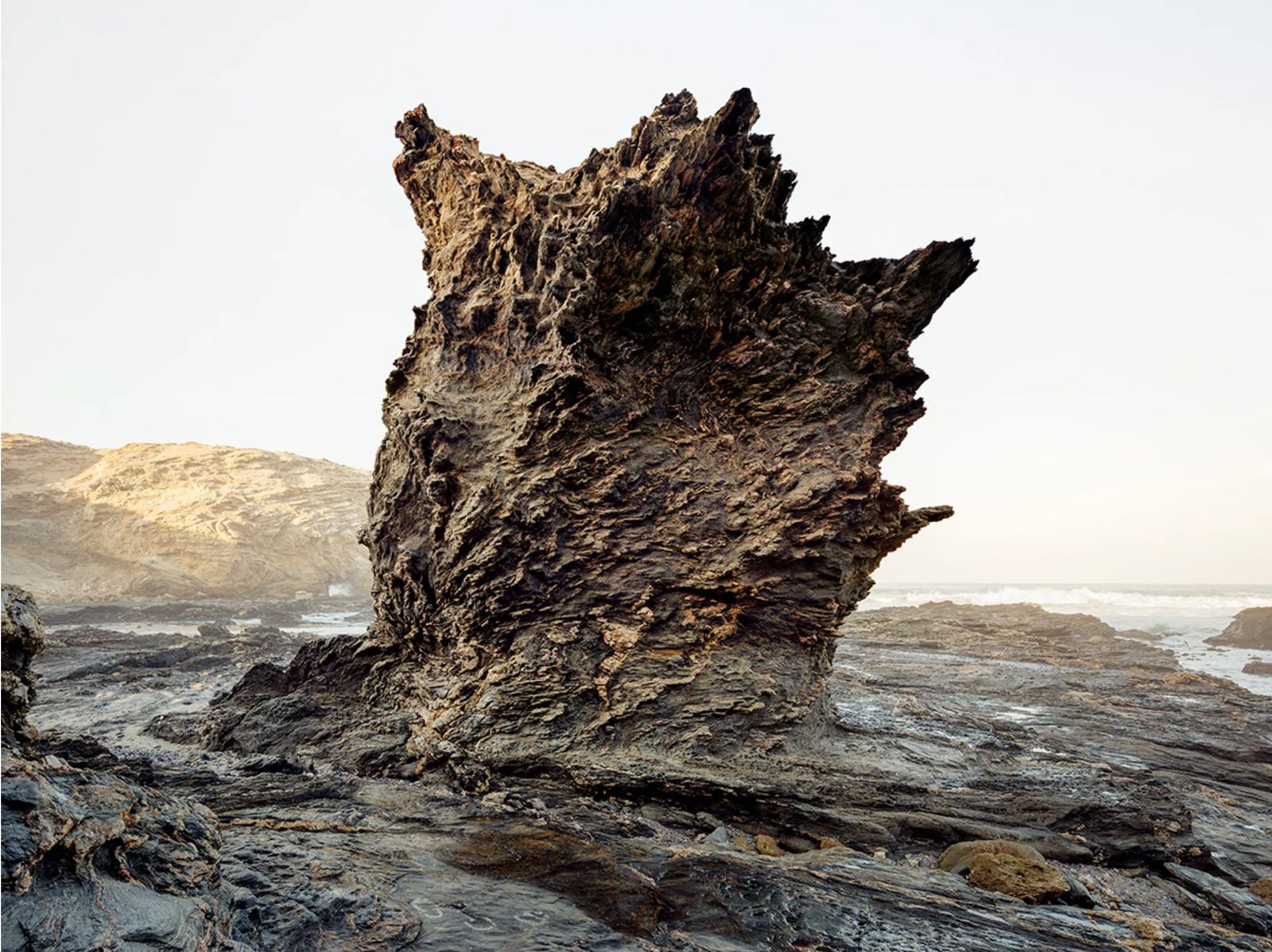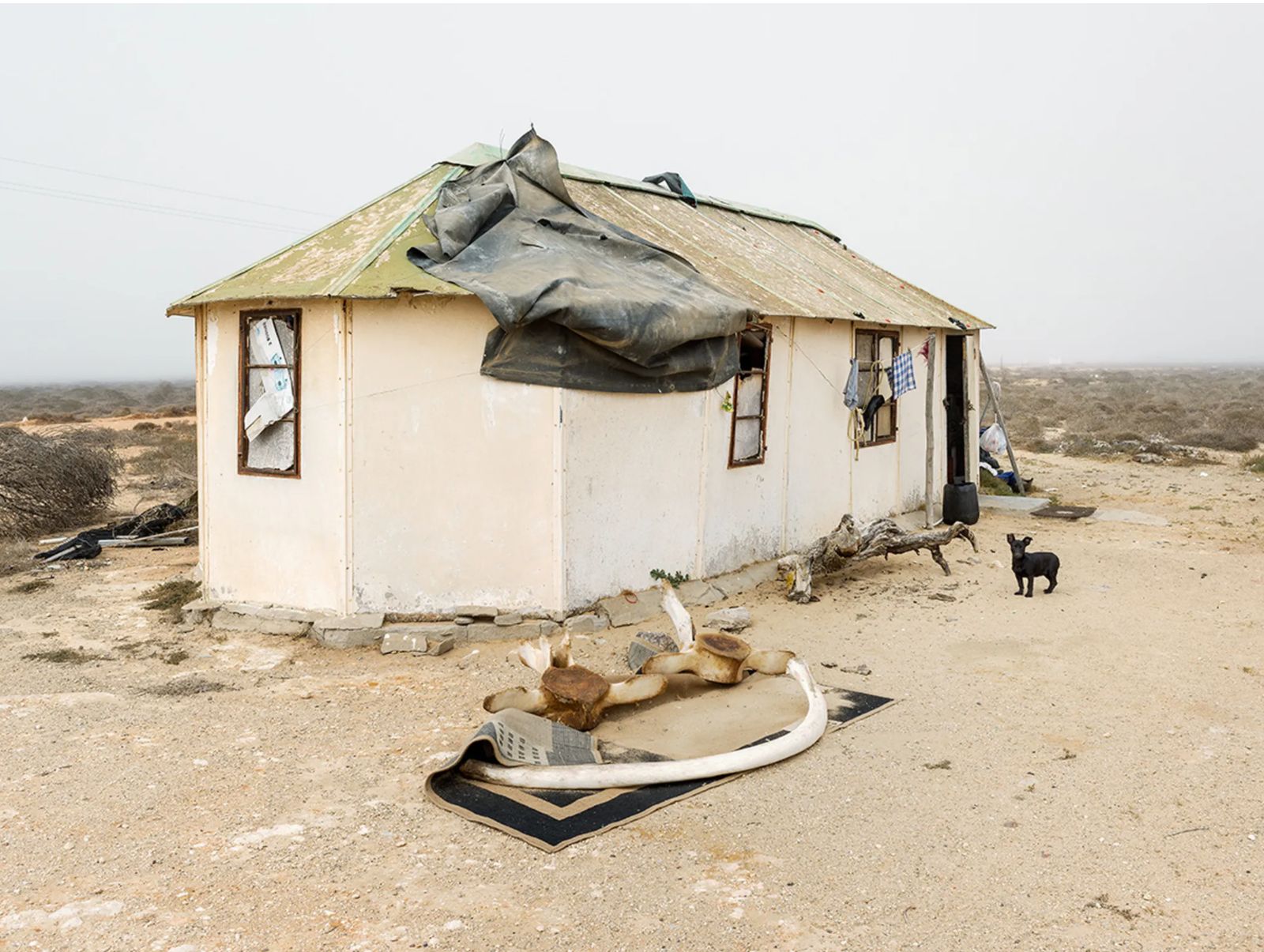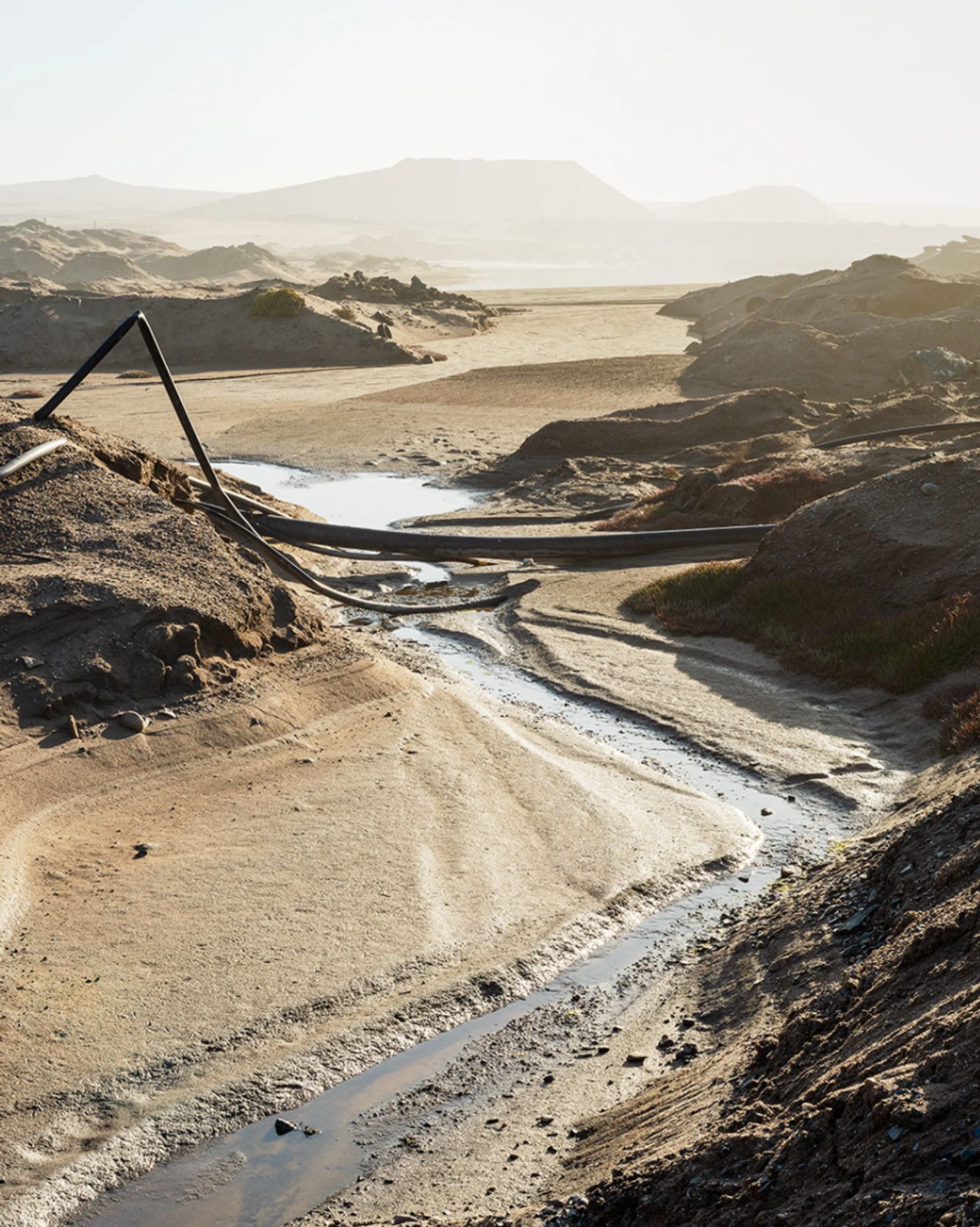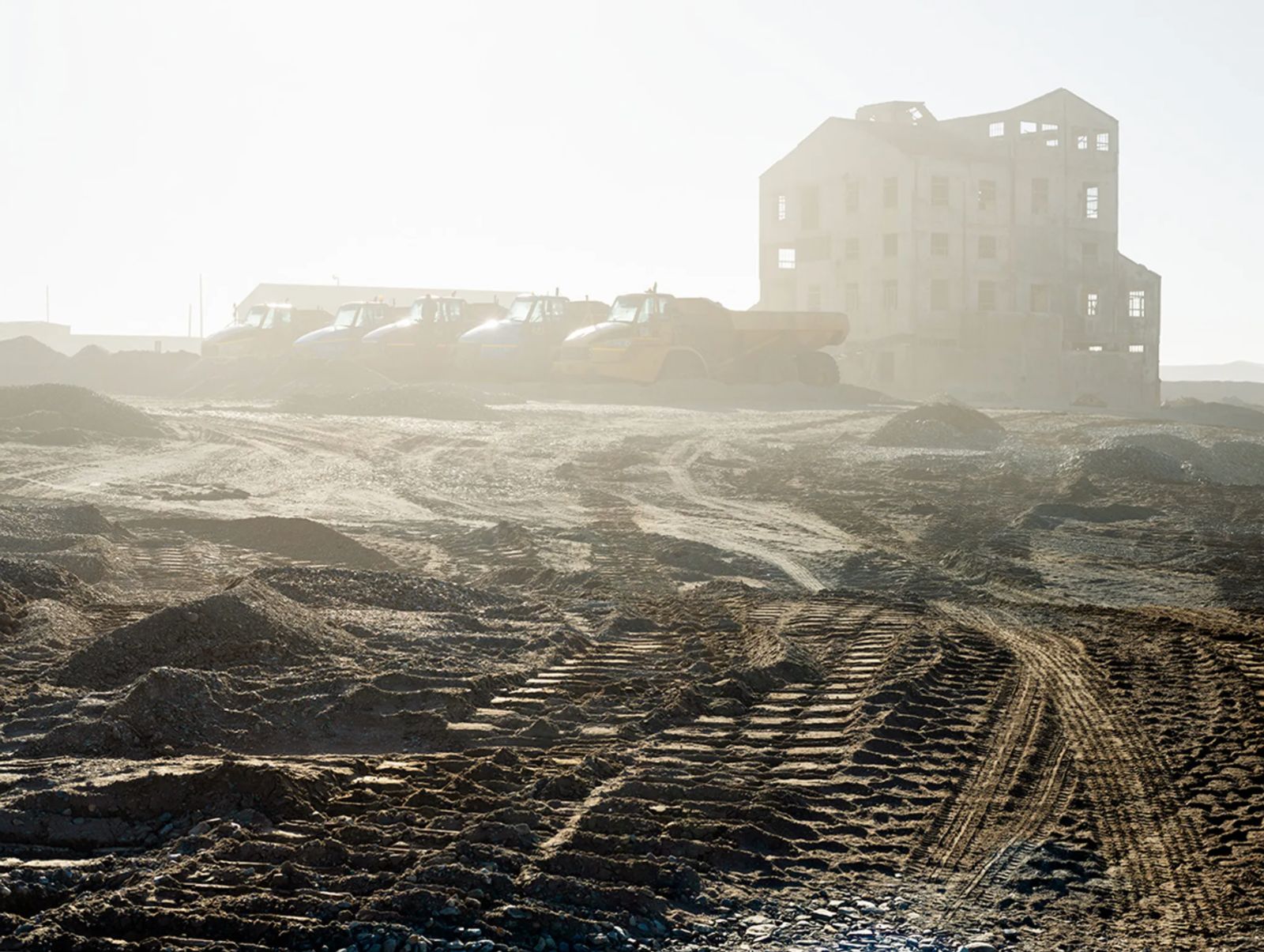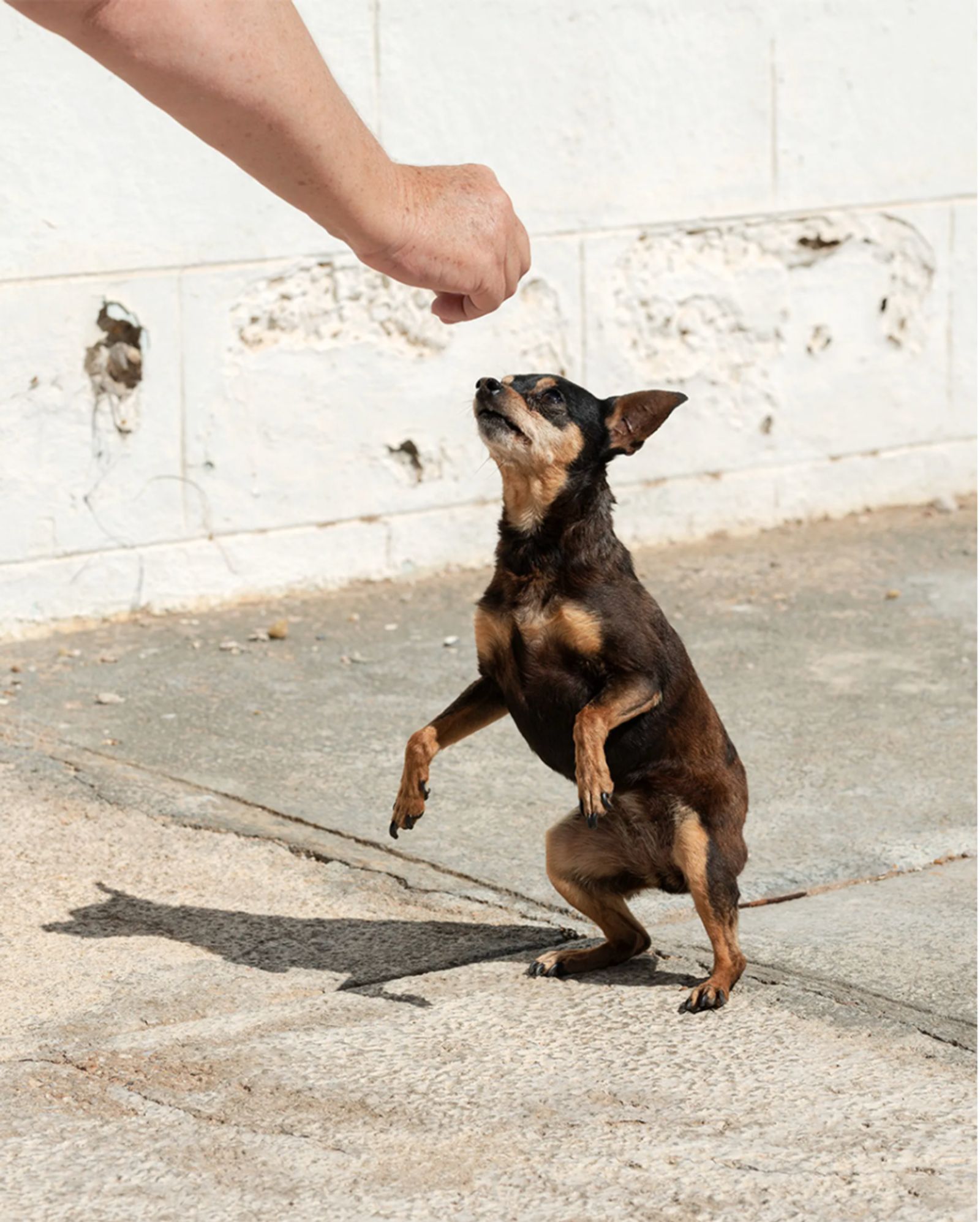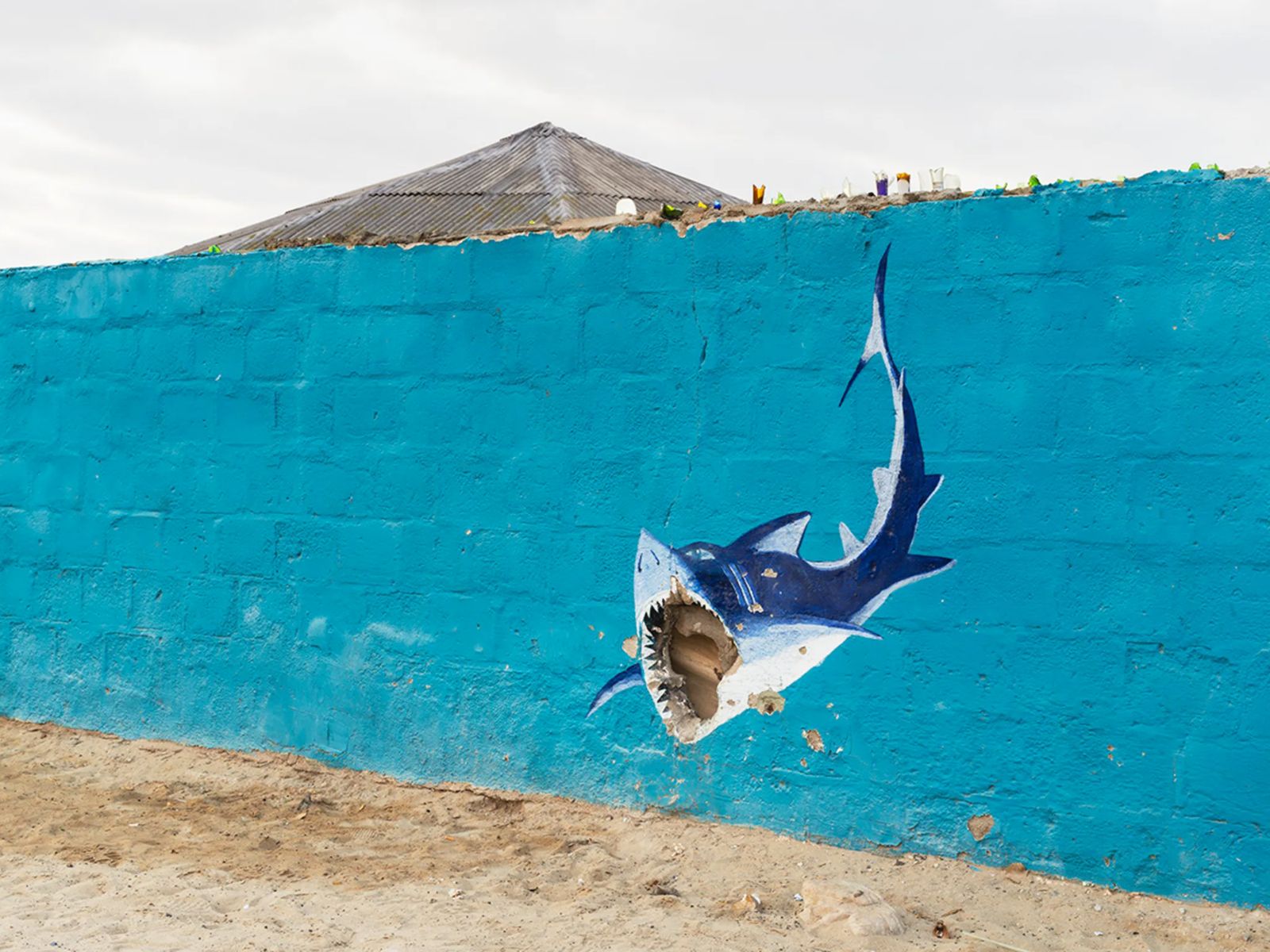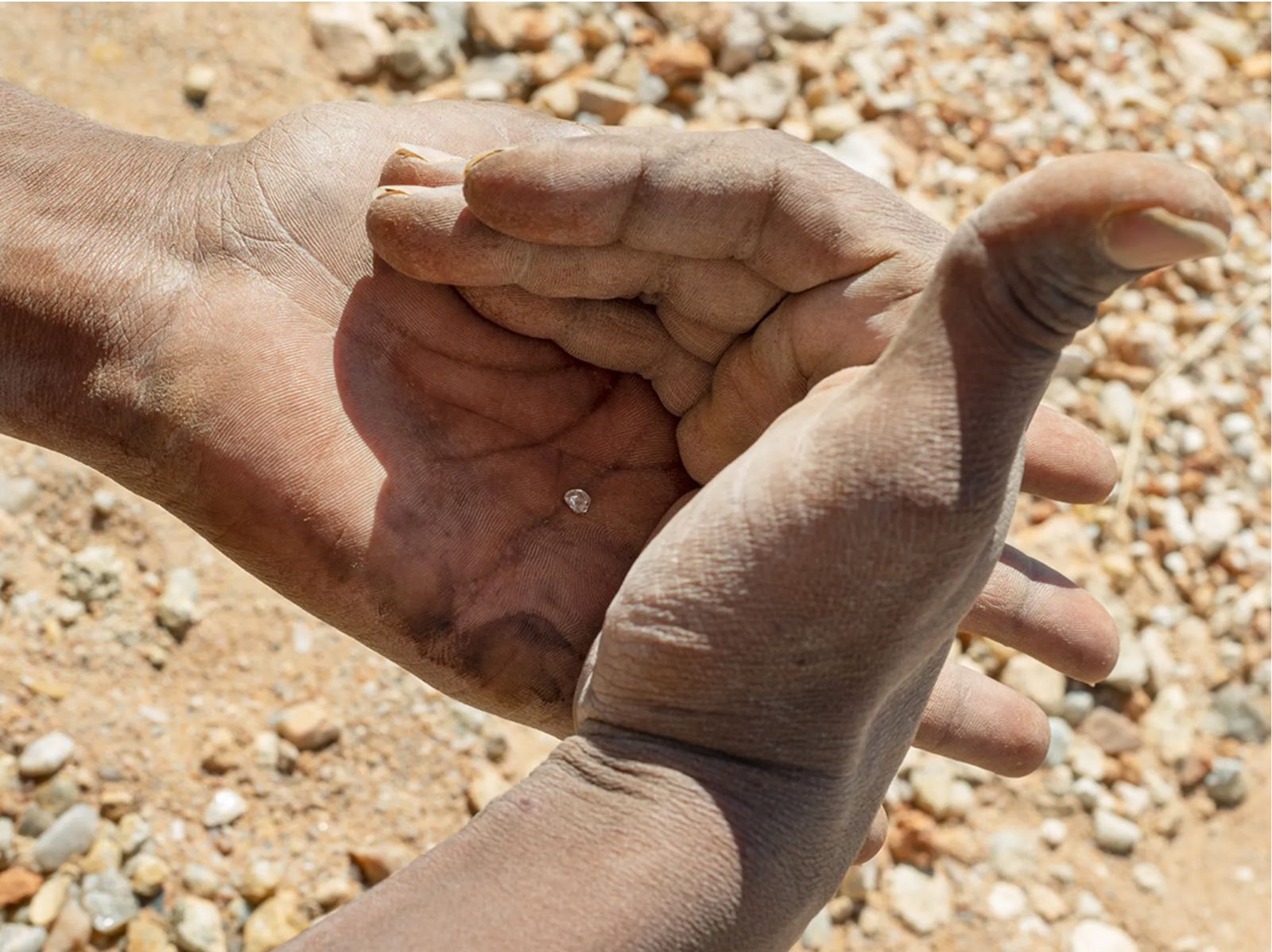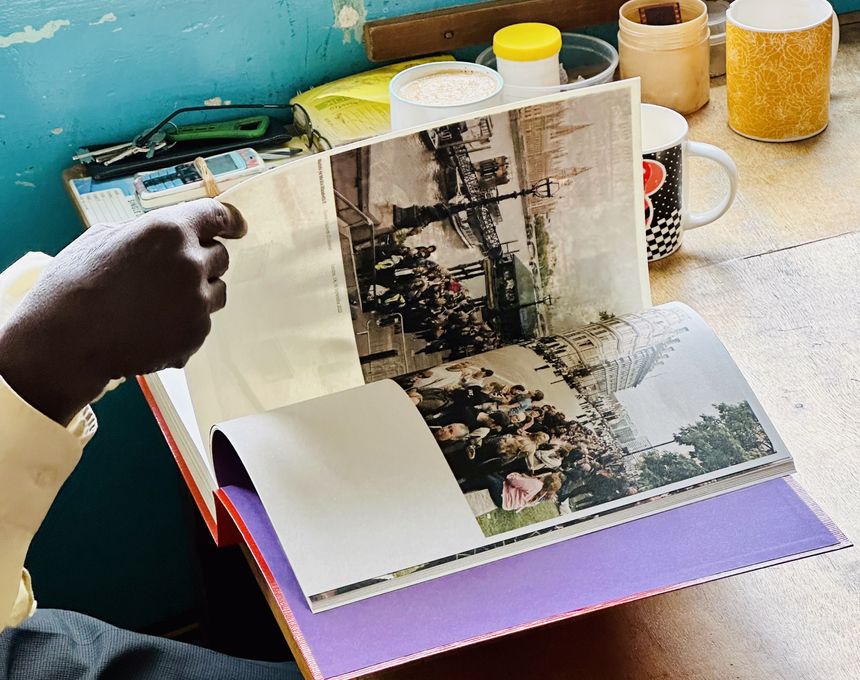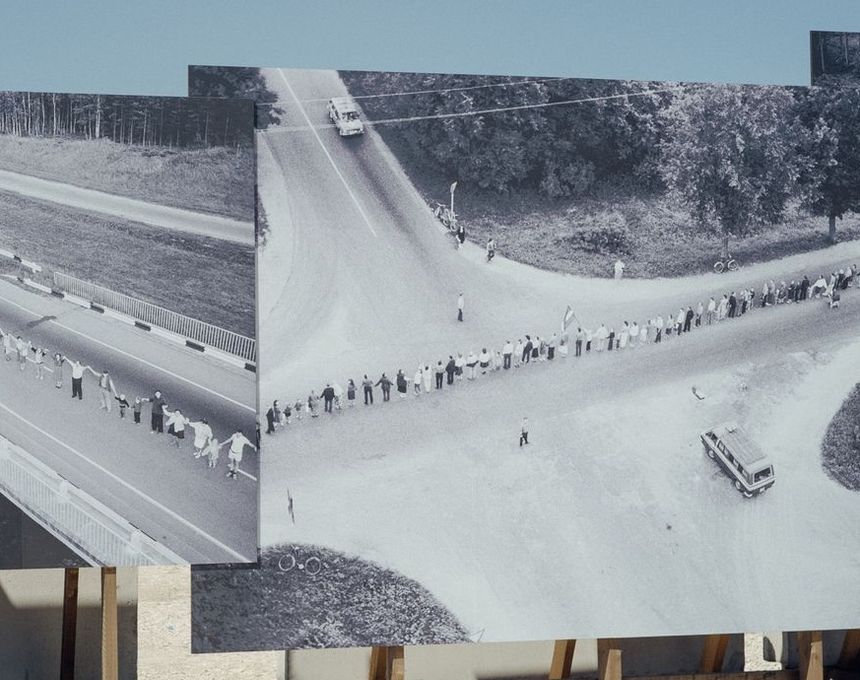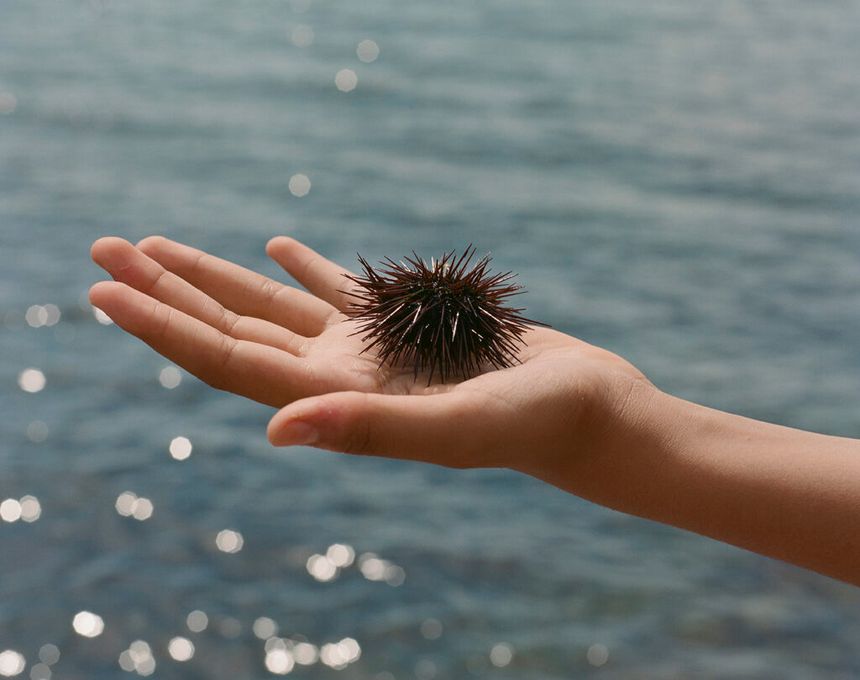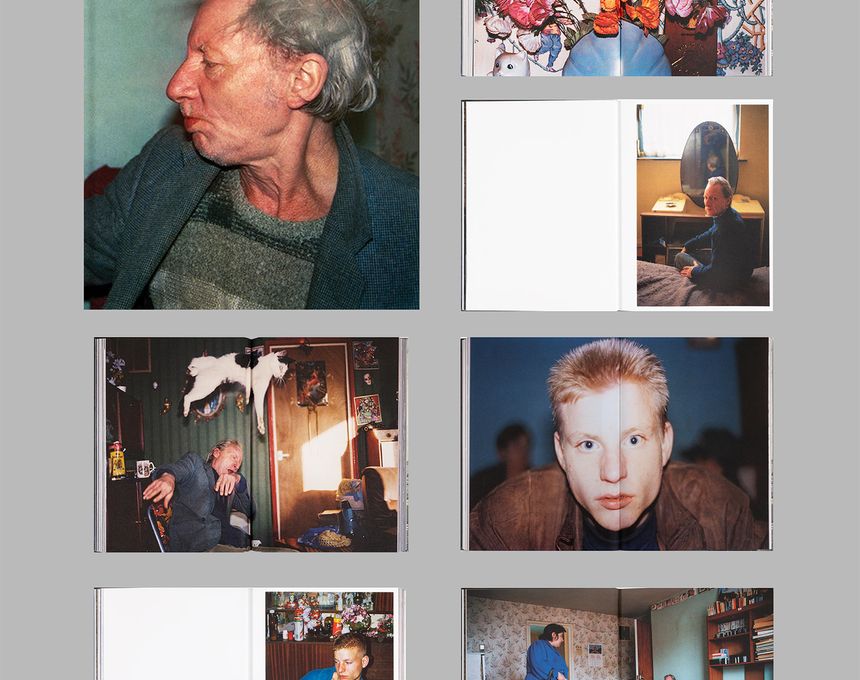An uncanny journey along Diamond Coast
-
Published29 Jan 2022
-
Author
On a quiet shore, a large rock looks like a frozen explosion of itself. Sculptural and intriguing with its anthropomorphic elements, the photograph introduces Dillon Marsh’s forthcoming book. And it somehow summarises his approach. Having worked along Diamond Coast, in Western South Africa, since 2013, Marsh has explored the landscape in a variety of ways. He decrypted the patterns of arid landscapes in a series of aerial photographs. He digitally manipulated landscapes to include in them giant balls of minerals that they contain in their depths. He inventoried in a typological way the dead trees scattered along the roads or spiky seeds travelling on their thorns around the country. And in a series of dreamlike visions, he turned tree leaves flashy pink, water fruity yellow and sky orange. Yet, « it's not a deliberate attempt to try and cover the full spectrum of landscape photography », he assures. Rather than being attached to one single language, Marsh responds to his surroundings intuitively.
Following the photograph of the rock, one of a house nearly falling apart but surely inhabited, judging from the presence of a dog and of whale bones and vertebrae drying on a carpet. The coast is full of uncanny elements without having to include them artificially, and Marsh undertook to look at them closely. Through them, though we might guess the impact of mining – economically, environmentally, and socially -, that’s only a background. « The work that I create is sensitive towards extraction, but I'm not trying to sway the opinion one way or the other. I'm just trying to present some sort of new understanding of the difficulties that are faced by mining », he says.
What captures Marsh’s attention is are rather strange situations, unlikely presences, striking patterns or signs in the landscape, be it urban or not: a tree indecisive whether to grow vertically or horizontally; a golf green resembling a bushy field; or handprints incrusted on a dusty garage door. The main difference with the previous work, and one that brings it intimacy, is the presence of people in some of the images. Yet, never directly - a hand here, a foot there, sometimes a full body but never a straight gaze. « I'm looking at the area as a marginalised area and looking at the way that people are interacting with it. But as soon as your photograph someone looking at the camera, the story becomes about them; it's hard to escape the gravitational pull of a fully frontal portrait », Marsh explains.
--------------
All photos © Dillon Marsh, from the series Diamond Coast.
--------------
Dillon Marsh is an artist from Cape Town, South Africa, who uses photography to explore the tenuous relationship between humans and the world around them.
Laurence Cornet is a writer and curator based in Paris focusing on cultural and environmental issues. She is also the editorial director of Dysturb and the international photo editor at Le Monde.
--------------
This article is part of our feature series Photo Kernel, which aims to give space to the best contemporary practitioners in our community. The word Kernel means the core, centre, or essence of an object, but it also refers to image processing.
